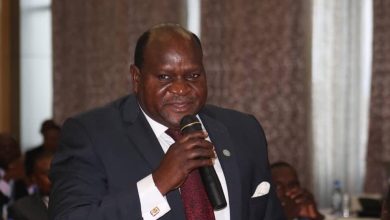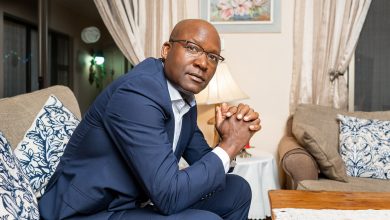CHRR: 30 years of fighting for human rights in Malawi
On February 2 this year, the Centre for Human Rights and Rehabilitation (CHRR) celebrated 30 years anniversary as one of the oldest and leading human rights organisations in Malawi. In this interview, Our News Analyst LUCKY MKANDAWIRE speaks to OLLEN MWALUBUNJU, who, alongside Undule Mwakasungula, founded the organisation when the country was just embracing democracy. The two served as first and second executive directors, respectively. Excerpts:
Briefly explain the foundation of the organisation?

CHRR was established on February 2 1995, by young Malawian professionals who had returned from exile. As young professionals we came back after an amnesty to help contribute to the promotion of democracy and human rights in our country. The organisation was a response to the new political changes, multiparty democracy and the adoption of a Constitution that included a Bill of Rights. Interestingly, CHRR started under a tree at City Centre in Lilongwe and was supported then by many well-wishers who subscribed to our cause. We salute all those who supported and continue to do so.
What was CHRR’s vision?
CHRR’s vision was to build a Malawi where democracy and human rights are respected and protected. With the motto ‘The Noble Cause is Evident in the People Themselves’, CHRR aimed to empower Malawians through awareness, mobilisation campaigns, advocacy, and policy influence to strengthen governance, justice, and Malawian’s participation. CHRR has always strived to ensure that Malawians understand their rights and have the capacity to demand good governance.
Key achievements so far?
It is undisputable that over the years, CHRR has made great contributions to human rights and governance in the country. We conducted a nationwide constitutional awareness campaign soon after the adoption of the new Constitution to educate Malawians on the Bill of Rights. We became the first Malawian NGO to gain observer status with the African Commission on Human and Peoples’ Rights. We have successfully handled numerous cases of human rights violations. CHRR has also played a key role in civic education and election monitoring, working with religious and other organisations since 1999. Another major achievement was leading a successful campaign against a constitutional amendment that would have allowed former president Bakili Muluzi to run for a third-term. CHRR has also been instrumental in the formation of many key human rights networks, such as the Human Rights Defenders Forum now Human Right Defender’s Coalition (HRDC), the National Mining Network and the National Anti-Corruption Alliance (Naca), just to name a few. Further, we have our own office space, which was one of the first achievements by the founders.
What major challenges has CHRR faced?
One of the main challenges has been dwindling donor funding, making it difficult to sustain operations and implement programmes effectively. The organisation has also struggled with perceptions that it is anti-government, due to its strong advocacy for human rights and good governance. That demonstrates the influence CHRR has made and is making in safeguarding the governance space.
How has CHRR ensured leadership continuity and sustainability?
It’s important to note that many NGOs in Malawi struggle with leadership transitions, but CHRR has successfully implemented a succession plan without challenges because of the shared vision and foundation of the founders. Since its founding in 1995, CHRR has had four executive directors, ensuring a stable and structured leadership transition. This is a unique achievement among Malawian NGOs, where many suffer from founder-syndrome, with many NGOs collapsing. Many NGO leaders do not want to leave, hence becoming briefcase NGOs. Important to note, also, is that as part of leadership stability, CHRR is now working on establishing a trust with the supporting vision of founders to generate income and reduce dependence on external donor funding.
What opportunities does CHRR see for the future?
Numerous opportunities, but CHRR believes in free civic space. And that the government has a responsibility to create that enabling space for human rights NGOs and advocates to operate effectively. We say this because we have experienced in the past the shrinking of civic space, where human rights organisations and advocates have been facing arrests, restrictions and intimidation. We have also noted the civic space being captured by individuals with self-serving interests. We are also looking at the Malawi 2063 framework as an opportunity through mindset change. Through this transformation in thinking, we will not only strengthen our civic space but also pave the way for a more united, peaceful, and prosperous Malawi.
What is CHRR’s commitment as it moves forward?
As founders, we take immense pride in CHRR’s 30-year journey and remain deeply committed to its mission of amplifying the voices of the marginalised, promoting good governance, and upholding human rights for all Malawians. Looking ahead, we firmly believe CHRR will continue to empower Malawians to assert their rights, demand justice, and hold leaders accountable. We are confident that CHRR will remain a key champion of democracy, human rights, and social justice for generations to come. Our dream is, even when we are no longer on earth, our vision must endure.





